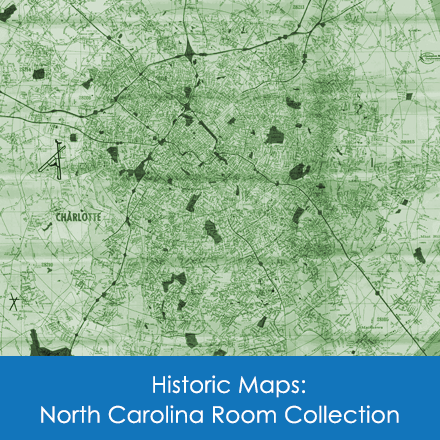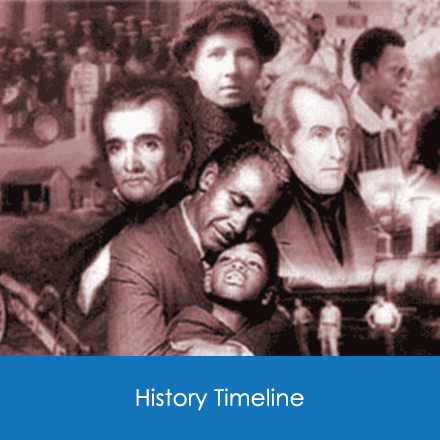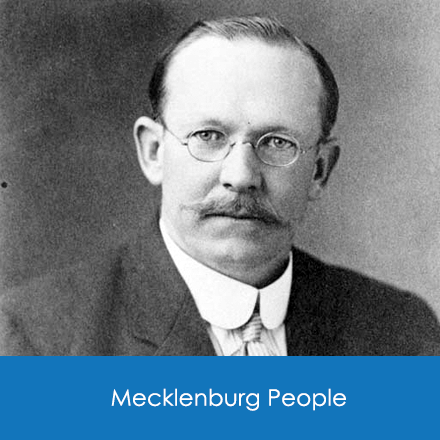You are here
Enter Andrew Jackson
HARDLY had the business of the May meetings been completed before Mecklenburgers began planning for their participation in the session at Hillsboro in August of the North Carolina Provincial Congress.
In naming delegates to represent them at Hillsboro, Mecklenburg's citizens once again chose trusted, veteran leaders. John H. Wheeler, in his History of North Carolina, released in 1851, names as delegates: "Thomas Polk, John Phifer, Waightstill Avery, Samuel Martin, James Houston, and John McKnitt Alexander." Significantly, the list contains the names of four signers of the Mecklenburg declaration. They took with them a set of instructions on how to implement the county and state governments in light of their new freedom from English rule.
But, at Hillsboro, Mecklenburgers once more were premature. At this session in the autumn of 1775 North Carolina did not declare its independence, though at the subsequent session in the spring, held in Halifax, the body unanimously adopted a resolution "that the Delegates from this Colony in the Continental Congress be empowered to concur with the delegates from the other colonies, in declaring Independence and forming foreign alliances; reserving to this colony the sole and exclusive right of forming a constitution and laws for this colony."
This resolution, adopted on April 12, 1776, almost three months before the adoption of the national declaration, recorded North Carolina as the first of the American colonies officially in favor of breaking with England. It gave the state flag the second of its two dates. The other is May 20, 1775. Both dates represent actions inspired in large part by freedom loving pioneers of Mecklenburg back country.
But although the August and September session the year before produced no outright declaration of independence, it did see the establishment of plans for the raising of military forces and the setting up of a civil government. The delegates provided for the raising of troops, committed North Carolina to pay its due proportion of expense in the training of a continental army, and named a committee to set up a system of civil government. This government would be vested in a provincial council for the entire province, a committee of safety for each district, and a committee for each town and county in the province.
The provincial council was to be composed of one man elected by the Congress, who would serve as governor, and two persons from each of the six districts. From the Salisbury district, which included Mecklenburg, Samuel Spencer and Charlotte's Waightstill Avery were chosen.
Hezekiah Alexander and Benjamin Patton represented Mecklenburg on the newly organized committee of safety, which was composed of a president and twelve members for each of the six districts. Larger committees were named for each of the counties and towns.
Meanwhile, determined efforts were being made to organize an efficient military force in the province and Mecklenburg was fully represented both in leadership and troops provided. But though soldiers from Mecklenburg in the next several years would be fighting far from home, actual invasion by the British would not come to Mecklenburg until late in the war.
The Provincial Congress first provided for the organization of two regiments of the Continental Line, with George Davidson a captain and George Graham an ensign in the first. The plan provided also for the enlistment from each of the six districts of militiamen, designated as minutemen. At the meeting the following December of the Provincial Council two other battalions of minutemen were authorized and Thomas Polk was made colonel of the second. The next spring the Provincial Congress, meeting at Halifax, created four new regiments and named Thomas Polk colonel of the fourth, with William Davidson a major. Colonel Polk had been serving as colonel of the county militia. Other officers included Adam Alexander as lieutenant colonel, and John Phifer and John Davidson first and second majors. Hezekiah Alexander of Sugaw Creek was named paymaster of the new fourth regiment. Mecklenburg's political leaders were fast becoming the region's military commanders.
And before the year that had seen Mecklenburg delegates meet in convention in the log court house was ended, Mecklenburgers had marched off to war, though this expedition, which was against a group of Tories called Scoffelites, would gain little place in history except for an amusing, if characteristic, action taken because of it by the young ladies of Mecklenburg. This was a compact entered into by them agreeing that they would not "receive the addresses" of any young man who had not served in that campaign. The South Carolina and American General Gazette of February, 1776, revealed the Mecklenburg misses' determination:
The young ladies of the best families of Mecklenburg County, North Carolina, have entered into a voluntary association that they will not receive the addresses of any young gentlemen of that place, except the brave volunteers who served in the expedition to South Carolina, and assisted in subduing the Scovalite insurgents. The ladies being of opinion, that such persons as stay loitering at home, when the important calls of the country demand their military services abroad, must certainly be destitute of that nobleness of sentiment, that brave, manly spirit which would qualify them to be the defenders and guardians of the fair sex. The ladies of the adjoining County of Rowan, have desired the plan of a similar association to be drawn up and prepared for signature.
The next summer a company of Mecklenburg militia under the command of Captain Charles Polk, son of Colonel Thomas Polk and husband of Hezekiah Alexander's daughter Mary who would long be recalled among the early families as "Devil Charlie" Polk, was among the nineteen hundred troops led westward by General Rutherford into the Cherokee country to subdue those tribesmen. Among Mecklenburg officers on this expedition were Dr. Brevard and three other signers of the Mecklenburg declaration, Colonel Adam Alexander, Lieutenant Colonel John Phifer, and Major John Davidson.
Mecklenburgers were also numerous and prominent in the brigade of more than 9,000 troops organized about that time at Wilmington, which the next summer went north. They arrived early in July at Philadelphia, fought in the battles at Brandywine and Germantown, and starved and froze with General Washington that disastrous winter at Valley Forge. It was during their stay in Valley Forge that a group of them instituted Charlotte's Phalanx Lodge of Masons, members of that body point out with much pride.
And when the fighting moved southward, Mecklenburgers were participants. With the surrender of Charleston to the British in May 1780, Mecklenburg soldiers were captured and imprisoned. Among them was Dr. Brevard, who was then serving as surgeon in the American forces. But the individual who would survive to achieve greatest fame was a youngster who though not old enough to be a soldier would become involved with the Redcoats in their push northwestward from Charleston. This Mecklenburger, then only thirteen, was a red-headed, obstreperous boy named Andrew Jackson.
Jackson was born March 15, 1767, in the Waxhaw settlement within a few hundred yards of what later would be the North Carolina-South Carolina line. He was naturally familiar with that section, its back roads and trails, and when Major William R. Davie in his efforts to slow the advance of the British in this region below the Waxaws required scouts and mounted messengers, he was able to use young Jackson to advantage. But the youthful ranger was captured and imprisoned at Camden; it was during that time that he was struck across the head with the flat of a British officer's sword when he refused to clean the Redcoat's boots. Very probably the fiery red-head in his refusal had added what the Englishman considered an insolent remark. It was also at that time that Andrew's brother Robert died of smallpox; already his brother Hugh had been killed in the fighting. And when, after his mother's tearful pleading, he was released, he himself was sick and half-starved, "a skeleton," he described himself, "not quite six feet long and a little over six inches thick."
Years later he would still be giving the British concern and his biographers - and countless interested persons in the intervening decades - cause for controversy. And to Mecklenburgers the question of where he was born would become, next to the Mecklenburg declaration of independence, their most warmly debated historical controversy. Was the seventh President born at the McKemey cabin in North Carolina or across the road at the Crawford plantation in South Carolina?
Blythe, LeGette and Brockmann, Charles Raven. Hornets' Nest: The Story of Charlotte and Mecklenburg County. Charlotte, NC: Public Library of Charlotte and Mecklenburg County, 1961.


